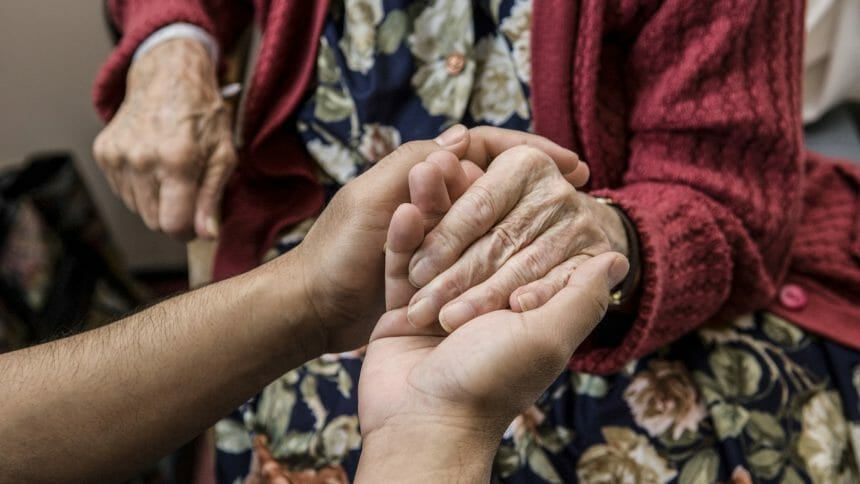
A new wearable device that can treat Parkinson’s disease tremors has hit the market and could make a difference for senior living and nursing home residents battling the disease.
Cala, a bioelectric medicine company, has launched the Cala kIQ System, a wearable device using AI that can treat action hand tremor for essential tremor and Parkinson’s disease. An action tremor occurs when patients undergo intentional movement
The tool measures each patient’s unique tremor and creates a relief pattern tailored to each person via the wearable device. Patients also can visit an online portal to monitor tremor incidents and their therapy results over time. The typical methods for treating tremors are brain surgery or medications, which can have limited efficacy and adverse side effects, according to the company. Millions of people across the US have essential hand tremor, which impacts activities in daily life such as holding a cup, opening a door or dialing a phone, and diagnoses continue to rise, research shows.
One million people in the U.S. have Parkinson’s disease, a number that’s expected to rise to 1.2 million by 2030. A primary risk factor for Parkinson’s is age, with incidence increasing in people 65 and older.
Artificial intelligence can be effective in treating and predicting Parkinson’s. Scientists from the University of New South Wales Sydney, in collaboration with researchers from Boston University, developed a new AI tool which can predict the probability of Parkinson’s disease with up to 96% accuracy and up to 15 years before a clinical diagnosis.
Additionally, the Michael J. Fox Foundation, which has raised $1 billion to date with the goal of eliminating Parkinson’s in our lifetime, is using an AI-based platform, Trial Landscape, to streamline its search for physicians actively treating Parkinson’s disease patients and collect information on patient populations, including underrepresented populations, and treatment approaches to support these patients.


